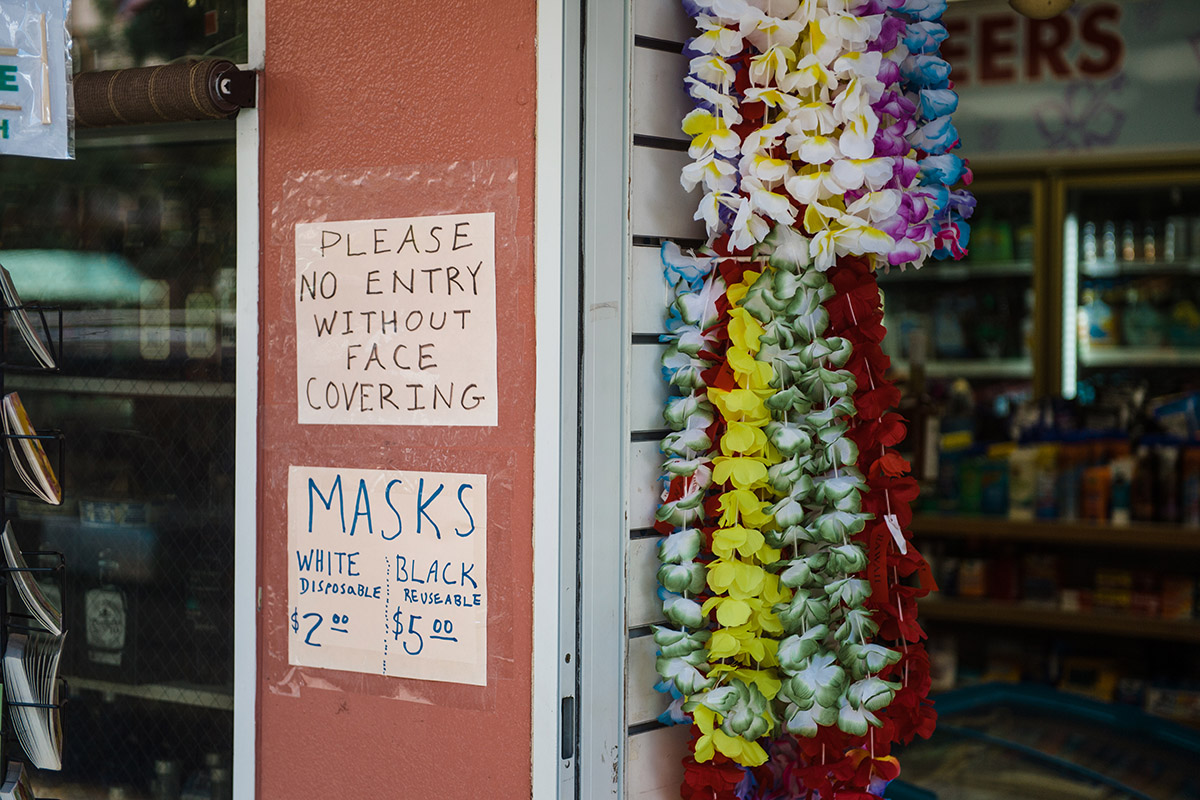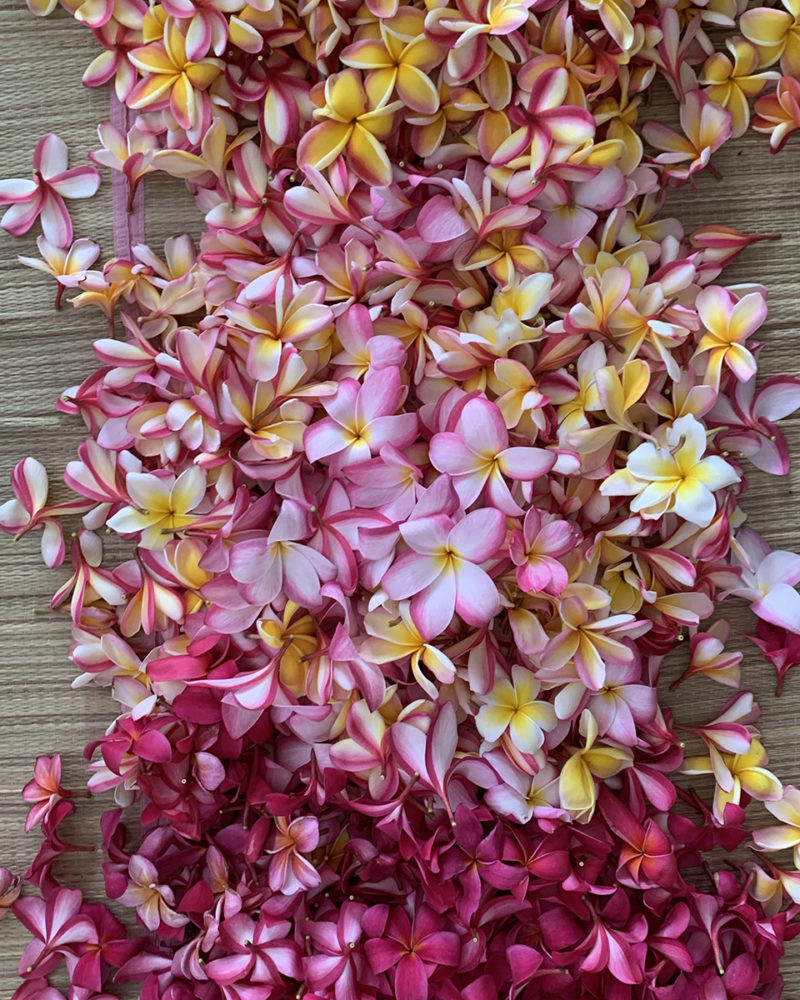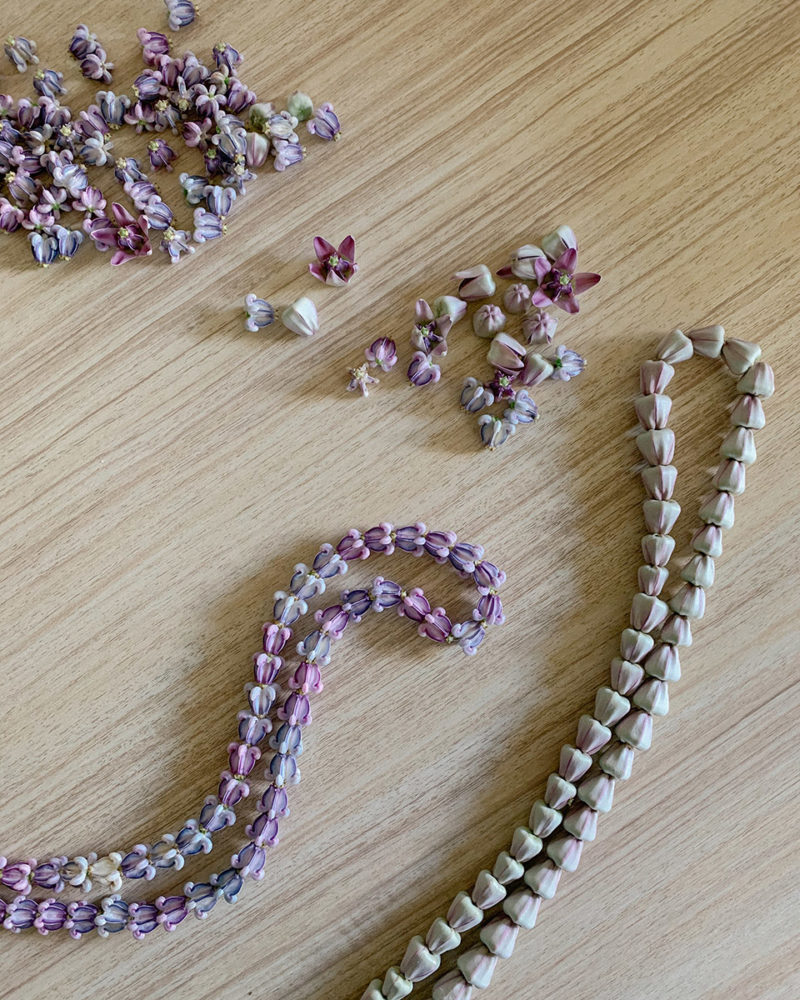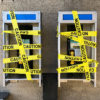A writer and native historian ponders the meaning of aloha in a pandemic world starved of connection.
As news of Covid-19 began to spread in early March, my son and I enjoyed iced tea and coffee one late afternoon in the open, airy cool of a café in Chinatown. The photo I took of him then, smiling in his high school uniform, is now a marker of the number of days since we have set foot in a local establishment to eat or drink without apprehension.
Months later, after his big band concert, choral competition, and junior prom had been cancelled, a deepening, premature sadness began to set in, fed by the fear of losing anticipated memories and not sharing time with graduating seniors and exacerbated by forced, 24/7 family time.
One evening, my son said he found a way to “degrease” his hair. He took me to the bathroom, sat down on the lip of the tub, and handed me the shampoo. “Can you work this into my hair and scalp using a minimum amount of water?” he asked.
Moving my fingers through his lengthening, soapy hair felt good. Washing someone’s hair is an intimate act, which we have unfortunately surrendered to strangers. It made me think, when was the last time I washed my son’s hair? When is it acceptable in our culture to show care for others like this? I wondered. Only with our children when they’re babies or elders with Alzheimer’s, as in mainstream society? We fall out of these routines unconsciously and inadvertently lose connection with each other.
I will never again take for granted the ambient caress of an anonymous crowd in a restaurant or movie theater. Nor the ability to hug my parents, to give lei, or oli.
As graduation time neared, we prodded our son to make lei for one of his friends. We made three kinds of lei: plumeria, candy, and paper. Enlisting the help of his 9-year-old brother and various aunties with supplies of cellophane and ribbon, we sat down as a family to prepare them. It was my son’s idea to write YouTube URLs on each flower, so that the lei became a soundscape of songs shared between friends who could no longer bike from Nānākuli to Mākaha or jump into the ocean together.
We had a fight before we went to the drive-through graduation ceremony. I said, “Remember, you can’t get too close to people, you can’t hug face to face.” He broke down into tears of frustration and screamed at me, “Wot! You like me throw da lei out da window?!”
When my world contracted to the point of a keyboard, many of the vital connections I had made through work and the friends I had prioritized receded. What emerged was a more vital inner life of connection to my family and pilina with my sons.
My heart ached that day for my son and his friend. I will never again take for granted the ambient caress of an anonymous crowd in a restaurant or movie theater. Nor the ability to hug my parents, to give lei, or oli.

Image by Matthew Dekneef 
Image by Matthew Dekneef
For years I felt that aloha was on life support. One day, in parting, I said “aloha” to a friend, and he replied dismissively, “Aloha—that word doesn’t mean anything. It’s overused.” In the Hawaiian language the word means more than “hello,” “goodbye,” and “I love you.” But in Hawaiʻi we have been saturated by these meanings and can only hear the word in English as marketing tool, as perennial invitation, as metonymy for a Hawaiʻi we do not inhabit.
Soon after, in 2015, I started the Facebook group 365 Days of Aloha as a way to foster deeper understandings of aloha using examples from Hawaiian language mele, oli, and positive imagery of Hawaiʻi and Hawaiians.
I thought to reach people like my friend with these Hawaiian songs and chants to familiarize them with the beauty and aesthetics of Hawaiian poetics beyond haole imaginaries and unburdened by manufactured colonial nostalgia that sells Hawaiʻi to tourists the world over.
In Hawaiʻi we have been saturated by these meanings and can only hear the word in English as marketing tool, as perennial invitation, as metonymy for a Hawaiʻi we do not inhabit.
In the summer, my son and I woke up early and drove to Keawaʻula. We parked our car and ventured onto the beach, two of only three people there as far as our eyes could see. He planted himself flush against one of the towering dunes heaped up by the evening’s high tide and relaxed. He walked into the clear waves and said, “I love this, I love this so much.”
Noelani Arista is a historian and the author of The Kingdom and the Republic: Sovereign Hawai‘i and the Early United States.
This article is part of The Pandemic Diaries, a series of essays written in the wake of the coronavirus pandemic.




